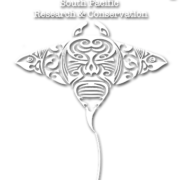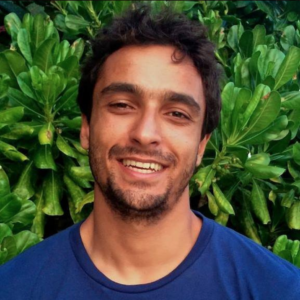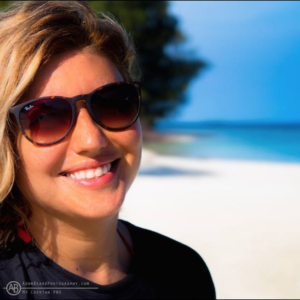Manta Watch Camp – Training with Freedive Flow
Adam and Carmen are two dedicated Marine Conservationists who trained with Freedive Flow on Gili Air to deepen their freediving to further improve their important work – an enterprise Freedive Flow is happy to support!
Adam Beard
The ocean has always been close to his heart. He combined his two main passions, diving and photography. Manta Watch Camp was naturally the next step in his career. Both Adam and Carmen are the founders of Turtle & Manta Watch Camp and they have moved across the world to some of the most remote areas in order to conserve these beautiful underwater animals while helping the locals benefit from ecotourism.
Carmen Toanchina
has been diving for more than 10 years, she is devoted to the ocean where her passion lies in teaching scuba diving and conservation. Adam and Carmen started Turtle Watch Camp last year, this was a great success with +4700 hatchlings released. More recently they have founded Manta Watch Camp. Their aim, conserving the most majestic creatures in the oceans by providing vital data through research and education.
A Need for further Knowledge
Being based on such a remote island off Milne Bay, Papua New Guinea certainly has its challenges! Manta Watch Camp’s primary focus is to research the manta rays, help protect their thriving habitat and collect and share really comprehensive data through our marine conservation and research program. We constantly found ourselves needing to enhancing our ‘advanced snorkelling’ skills, duck-diving on a daily basis down to +10m to set up our less intrusive Manta ID capturing camera. This was a hugely successful way to capture shots of passing manta rays over the period of 3-12 hours, especially during times we were unable to SCUBA dive. This method proved to be extremely effective as we managed to ID a large number of Manta rays that perhaps might have been too shy for our company whilst using SCUBA. We soon realised we were onto something…
During our first season we started seeing an increasing number of inquiries from guests that wanted to join our mission. But as many of them were freedivers we sadly were unable to accommodate them due to lack of training on our side.
The popular question, ‘do the Manta rays interact differently with freedivers?’ immediately sparked our interest. After some research on the topic, ‘The Art of Apnea Diving’, we were astonished by our findings. The fact that some divers could hold their breath for up to 8 minutes and reach staggering depths of +100m absolutely blew our minds! We began to dream of innovative ways freediving could be used to impact our research strategy and we could already see the experience for the Manta rays would be improved too. This sparked our hunger for knowledge and the desire to be able to perform breath hold dives that previously had seemed somewhat inhuman.
Manta Watch Camp
Manta Watch Camp is a research and conservation program based in Papua New Guinea. They work alongside Manta Trust and Conservation international.
They work closely with local communities, tourists and government to ensure the preservation of these beautiful animals, through science, education, community based initiatives and government legislation.
Where to gain this inhuman Knowledge?
During our recent season, we finally decided to make the leap of faith and jump straight into the deep end. We were determined to expand our ‘advanced snorkeling’ knowledge and the thought of diving without the need for bulky tanks or regulators felt incredibly liberating. We also took advantage of the extra luggage space whilst travelling which was a huge bonus! As there weren’t any freediving instructors in Papua New Guinea (coming soon!), we found ourselves on route to the tropical paradise of Gili Air island, which happens to be home to a world renowned and highly recommended freediving training school.
Freedive Flow (www.freediveflow.com) has got an unparalleled reputation. Having the privilege to be visited by freediving legends such as world record holder William Turbridge really justifies their brand name and creates a really enthralling atmosphere to study and learn from the best. We were really surprised with the amazing facilities too and found ourselves extremely lucky to begin our new journey, training with such an elite group of freedivers in such an epic location!
Freedive Flow supports Marine Conservation
After a very friendly chat with Oli Christen, the inspiring owner of Freedive Flow, it was apparent that we were on the same page. We shared the story of our current project and described in great detail Manta Watch Camp’s current goals and ambitious vision for the future. It was abundantly clear that Oli had a real passion for marine conservation and it was really great to make a connection with someone who shares so many of the same values, especially when it comes to protecting our oceans. Oli is also an instructor/trainer and has many years of freediving experience under his belt. He was so supportive of Manta Watch Camp and our previous project in Malaysia (Turtle Watch Camp) that he suggested we apply for his generous marine conservation training program, that aims to support conservation projects like ours, by introducing us to the wonderful world of freediving. Finally, it was time for us to get out of our comfort zone and take a deep breath.
Back to School…
During our first week we were given some self study materials, so we could get a grasp of our new hobby. The material was supported with really useful presentations and revision-sessions with the amazing Yosh, a Master Instructor with years of experience both in freediving and close-up studies of marine life. As PADI Scuba Instructors, we found that there were some similarities, especially with the scientific sections of freediving that happened to be based on rules we were already familiar with, however, the deeper we dived into our studies, the more we realised that there were so many new theoretical and practical skills for us to learn and delving in was so refreshing.
It’s All About Technique
Despite having 2000+ SCUBA dives and 1000’s more in-water sessions, we found ourselves in drastic need to improve our technique in order to become efficient freedivers. It was just so different to what we were used to, but we embraced the challenge! We started with our confined shallow water safety & rescue training in Freedive Flow’s custom built 20m training pool on the premises of the renowned Oceans 5 Dive Resort and began learning some relaxation techniques. This was followed by our very first attempt at a Static Apnea breath hold. ‘Static Apnea‘ is the process of being face down in the water, completely still, whilst holding your breath for as long as you can. During this session, Yosh carefully watched over us, and was there to greet us when we surfaced to offer calming coaching to help us release the tension build up in the body.
This coaching session was heavily focussed on mind control training, a hugely important area of study for those thinking about having a go at freediving. After our first few attempts of static apnea, we were truly astonished that we had actually just held our breath for over 3 minutes! Remember, it was only a few days prior to this achievement where we thought this type of breath-hold required superhuman powers!
Our next session was Dynamic Apnea, which is swimming underwater on a single breath. Yosh was at hand to help us fine-tune our body position, hydrodynamics and of course our finning technique. This was the last hurdle before being unleashed in the open ocean and it was really valuable learning for us.
Continue following our story in PART II




